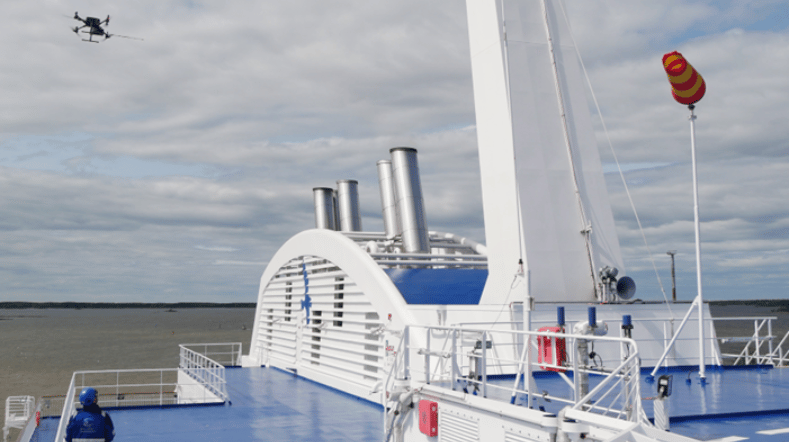Research on integrated vehicle safety
TNO is recognised by OEMs and TIERs worldwide as a valuable knowledge partner with unique expertise, tools, and facilities. Activities within the Integrated Vehicle Safety (IVS) research department focus on improving the functional safety of vehicles and preventing fatalities and serious injuries by developing integrated safety solutions, which are robust and reliable under all conditions.
TNO has unique automotive expertise, resources, and facilities for the development of high- and low-level control software for safety-related applications, such as:
Advanced Driver Assistance Systems
-
Vehicle State Estimation (VSE)
-
Anti-Lock Braking Systems (ABS)
-
Electronic Stability Control (ESC)
-
Frontal Collision Warning (FCW)
-
Blind Spot Detection (BSD)
-
Lane Change Assist (LCA)
Automated Driving Applications
- Autonomous Emergency Braking (AEB) (Watch the video)
- Adaptive Cruise Control (ACC)
- Traffic Jam Assist (TJA)
- Automated Lane Change / Lane Merging (Watch the video)
- Collision Avoidance (CA) (Watch the video)
- Fully Automated Highway Platooning (Watch the video)
Cooperative Driving Applications
- Cooperative Autonomous Emergency Braking (C-AEB) (Watch the video)
- Cooperative Adaptive Cruise Control (C-ACC) (Watch the video)
- Cooperative Intelligent Bicycle
Activities
Using advanced software tools and research facilities, TNO supports the automotive industry with the development of robust and fail-safe software control algorithms, innovative methodologies, and system architectures.
The Vehicle Safety (VS) department specialises in:
- detailed physics-based modelling for real-time software applications
- model-based simulation of multiple real-world scenarios for rapid virtual testing
- model-based control for the optimisation of the functionality and robustness of safety systems.
It’s important for our clients to prove the added value of our software solutions under real-life conditions. Automotive research at TNO has a strong track record of software implementation at a Rapid-Control-Prototyping level, using the preferred hardware platforms and vehicles of automotive OEMs and TIERs. To enable our clients to start producing the integrated safety solutions, TNO also provides the necessary software codes, knowledge transfer, documentation, and consultancy services for the customised implementation of the software. TNO also supports its customers in the move to embedded software products.
Vehicle Dynamics, Estimation & Control (VDE&C)
The Vehicle Dynamics, Estimation & Control (VDE&C) group has a core competence in tyre and vehicle dynamics modelling and control. The group develops tyre models and model-based vehicle state estimators and controllers with a focus on active safety and automated driving systems. The estimators provide a highly reliable and real-time corrected representation of the vehicle’s driving capabilities, which are crucial for vehicle control algorithms related to braking, acceleration, and steering, or which can feed V2X safety applications. To support and accelerate the introduction of new technologies, the group is working on full vehicle implementation and performance demonstrations, with integrated safety solutions ready for public roads.
Cooperative Vehicle Systems (CVS)
Optimising the safety, flow, and fuel efficiency of road traffic requires an integrated approach that doesn’t only focus on individual vehicles, but instead focuses on the entire traffic system. The Cooperative Vehicle Systems (CVS) group focuses on cooperative driving, which aims to influence individual vehicle behaviour through advisory or automated actions to optimise collective behaviour. Wireless communication is used for this, allowing road users to receive information about their surroundings outside their field of vision. More specifically, the CVS group aims to create new real-time safety-critical cooperative and automated systems, including fundamental theory, model-based development, simulation, real-time implementation, and experimental evaluation at proof-of-concept demonstrators. The scientific and technological focus is on situational awareness based on the fusion of wireless and multi-sensor information, real-time embedded software to support mixed-criticality applications, (network) control of interconnected vehicle systems, and fault tolerance.
Safety Assessment & Methodologies (SA&M)
The Safety Assessment & Methodologies (SA&M) group focuses on the development of human behaviour prediction models and applications for the design and evaluation of integrated vehicle safety systems, ranging from passive safety systems, advanced driver assistance systems (ADAS), to automated driving applications. The group is also developing new methodologies to evaluate the real-world performance of integrated safety solutions to support and contribute to the Vision Zero goals, both in the Netherlands and around the world.
TNO has a strong background and expertise in biomechanics, mathematical modelling, crash test dummies, virtual testing, and evaluation methods. For the voluntary testing and modelling of cognitive behaviour, the Integrated Vehicle Safety (IVS) department works closely with other research departments within TNO. Our human modelling knowledge is captured in numerical models, simulation tools, and injury criteria databases. We also apply our research and advice in other fields; for example, to improve the safety of occupants of ‘free-fall’ lifeboats.
Get inspired
With Urban Strategy, TNO connects with innovative U.S. West Coast in San Diego


World Energy Congress 2024
World Hydrogen Summit 2024
Scenario-based thinking contributes to sustainable mobility and retention of human capital in Curaçao


Real-world methane emissions from LNG-fueled ships are higher than current regulations assume


